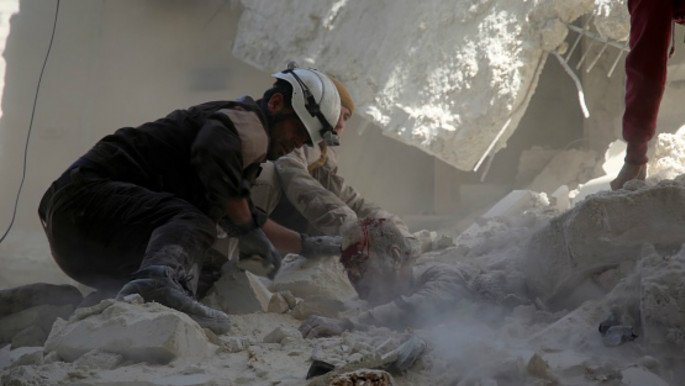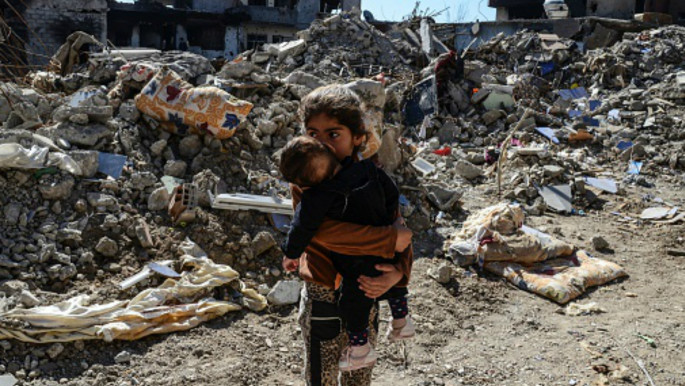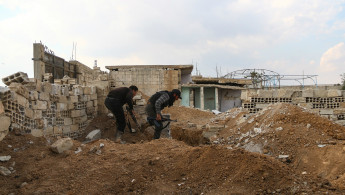Syrian regime intensifies assault on opposition-held grounds despite ceasefire
Government fighters, rebels and militants battled for control of swathes of the Aleppo province, threatening a nearly seven-week ceasefire that had seen violence drop for the first time in the five-year conflict.
"Regime loyalists, backed by Russian airstrikes, pressed a fierce offensive just north of the provincial capital of Aleppo city," said the Syrian Observatory for Human Rights.
Fighting was heaviest around Handarat, a hilly area that lies along a route leading north out of opposition-held parts of the city.
Regime forces, backed by Russian and Syrian planes, were seeking to cut off that road and "completely besiege" eastern neighbourhoods, Observatory head Rami Abdel Rahman said.
"We're overwhelmed once again by fears of a government siege of Aleppo, after weeks of a ceasefire that may have just collapsed," said Ali Saber, a 32-year-old father of one living in Aleppo.
"You could hear heavy shelling throughout the night," a local source told The New Arab.
 |
| A civil defence member attempts to rescue a man from the wreckage of a building struck by Russian airstrikes in opposition-held al-Salihiya district in Aleppo [Anadolu] |
The assault has sparked "strong concerns" in Washington about the ceasefire, which saw violence plummet after it took effect on February 27.
A senior US administration official said the offensive "could well violate the cessation of hostilities, which has been under increasing pressure in recent weeks."
EU Foreign Policy Chief Federica Mogherini also expressed concern about the Aleppo offensive and called for the "respect, consolidation, and expansion" of the truce.
Representatives of Syrian President Bashar al-Assad's regime are expected in Geneva on Friday for peace talks with UN envoy Staffan de Mistura, who criticised the government for hindering efforts to deliver life-saving assistance to Syrians in need.
"The Syrian opposition asked from De Mistura to put pressure on the regime to stop attacks in opposition-held areas and adhere to the conditions of the ceasefire," a source in Geneva told The New Arab.
"The Syrian opposition also urged for the delivery of humanitarian aid to the besieged areas and the release of prisoners," the source added.
 |
| Restrictions by Damascus have frustrated efforts to deliver much-needed assistance to besieged Syrians [Getty] |
Desperate humanitarian situation
The UN fears that the humanitarian situation may deteriorate once again after reporting significant progress through the first two weeks of March.
"We are extremely concerned about the situation in northern Syria, including Aleppo governorate, where there has been a significant increase in incidents of violence that continue to aggravate the humanitarian situation," a UN humanitarian official told AFP.
The official said the UN was planning several aid deliveries to Afrin and Azaz – two flashpoint areas in the province – in the coming days.
But restrictions by Damascus have frustrated efforts to deliver much-needed assistance to besieged Syrians, UN envoy de Mistura said.
Despite several UN Security Council resolutions that call for unobstructed aid access to besieged areas, the regime continues to frequently deny passage to convoys carrying assistance.
"Everyone in the meeting was disappointed," de Mistura told reporters after a weekly meeting of the so-called humanitarian taskforce on Thursday.
"Many of [the countries] are actually frustrated by the lack of new convoys," he added, naming Douma and Daraya, both besieged by the regime near Damascus, as being in dire need of aid.
De Mistura said he made some progress in Damascus by securing tentative permission to distribute medical supplies.
But he said that the government had specifically excluded surgical equipment, anti-anxiety pills and atropine, which can be used to guard against poison – including sarin gas.
Agencies contributed to this report





 Follow the Middle East's top stories in English at The New Arab on Google News
Follow the Middle East's top stories in English at The New Arab on Google News


